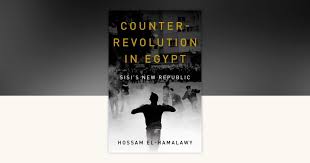85 years ago today, Leon Trotsky was struck down by a Stalinist assassin in Coyoacán in Mexico. As his grandson recalled in 2017, this was not the first attempt on the life of the man who founded the Red Army.
I’ve never understood why anyone on the Left would tell jokes about that ice axe. You never hear “canal jokes” about Rosa Luxemburg or “shotgun jokes” about Malcolm X.
Some might accuse Trotsky of being a “splitter” due to his struggle against Stalinism. But Malcom X was no less a “splitter,” both from Martin Luther King and from Wallace Fard Muhammad. Rosa Luxemburg was a “splitter” par excellence, breaking with the PPS, the SPD, the USPD, etc. Splits in progressive movements happen all the time—the question is: which side is right?
Conspiracy theories
Dedicated Stalinists might call Trotsky a “traitor,” based on Stalin’s accusations that Trotsky collaborated with Nazi Germany and Imperial Japan. (When Stalin was allied with Hitler, he accused Trotsky of working for the British.)
During the Great Purges, 681,692 people were executed on charges of being part of Trotsky’s counter-revolutionary conspiracy. This would have been, by an order of magnitude, the largest conspiracy in human history—George Bush personally directing Osama bin Laden would have been a piece of cake by comparison. Yet even after many decades, not a scrap of evidence has been found showing that so many communists were secretly working together with their sworn enemies.
Both Germany and Japan were defeated, with their archives ending up in the hands of the Soviets and the Americans. If there was a conspiracy, then the U.S. and Russia have been keeping Trotsky’s secrets for over 80 years. In the Nuremberg trials, Soviet prosecutors interrogated Rudolf Hess, supposedly Trotsky’s contact man in the fascist regime. Thus, Stalin himself must have been part of the coverup too.
A handful of ultra-Stalinists still try to defend the Moscow Trials. The professor of medieval English literature (not history) Grover Furr has written numerous books that claim to prove Trotsky’s guilt. Yet as Doug Greene examines in a forthcoming book, Furr admits he’s never found any evidence besides the preposterous “confessions” of people showing obvious signs of torture.
Failed theories
A more “moderate” Stalinist might acknowledge that more than a few innocent people were killed, but that the murder of Trotsky and most of the leading figures of the October Revolution was a historical necessity to defend the Soviet Union and consolidate socialism.
But as the Left Opposition pointed out at the time, the suppression of all forms of proletarian democracy could only weaken the socialist project. Looking back from a century later, we can say that “really existing socialism”—rather, the rule of a privileged bureaucratic caste—alienated the masses of workers, who made no attempt to defend a system they supposedly controlled.
This is precisely why Trotsky is relevant today. While his contributions to Marxism are too extensive for this short column, many of his ideas were not original: he merely defended ideas first put forth by Marx and Lenin about the need for a socialist revolution to be international, for example, against the failed idea of “socialism in one country.”
Trotsky was the most important Marxist to study the bureaucratization of the Russian Revolution—a social formation that had never existed before. His analysis of this degenerated workers’ state helps understand these non-capitalist, but also non-socialist societies.
Trotsky in Berlin
Trotsky never had a strong personal connection to Berlin—his pre-revolutionary years of exile were spent in London, Vienna, Paris, and New York. Yet much later, while he was in exile from the Soviet Union on the Turkish island of Prinkipo (today Büyükada), he wrote piercing analyses of German politics in the late 1920s and early 1930s.
Trotsky’s writings on Germany are well worth reading today, as the Far Right is once again advancing threateningly. The Left Opposition argued for a workers’ united front against fascism, as part of a revolutionary strategy to topple capitalism. Perry Anderson has called these works “the first real Marxist analysis of a twentieth century capitalist state” and “unmatched in the field of historical materialism.”
In the TV series Babylon Berlin, Berlin’s Trotskyists of the 1920s are portrayed as isolated weirdos. In real life, however, the Trotskyist movement was made up of factory workers fighting to unite the whole working class in the life-or-death struggle against the Nazis. After they lost this struggle, Trotskyists remained active in the resistance and in the concentration camps. Even though most cadres were liquidated by fascism, a few survivors rebuilt German Trotskyism after the war––and were joined by many more young people after 1968.
Today, 85 years after one of the most heinous assassinations of the 20th century, is a good day to cast aside silly stereotypes and think about what Trotsky’s ideas can offer us for the struggle against capitalism today.
Red Flag is a weekly opinion column on Berlin politics that Nathaniel has been writing since 2020. After moving through different homes, it now appears at The Left Berlin.




